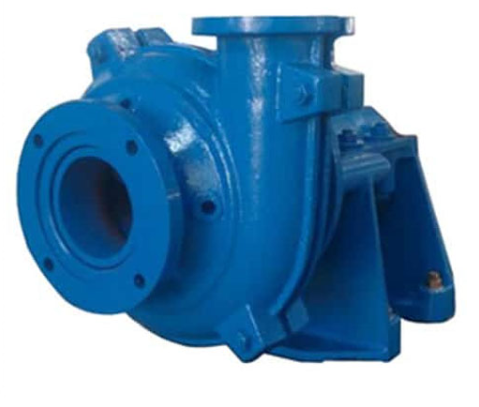- Shifo Industrial Zone, Anguo City, Hebei Province,China
- +8618831216699
sale@nlpumps.com

Slurry pumps are critical equipment used in mining, industrial processing, and construction projects. They are designed to handle abrasive and corrosive materials, such as gravel, sand, and sludge. When a slurry pump stops working, it can disrupt the entire production process and lead to costly downtime. In this article, we will explore some of the common reasons why a slurry pump may not work.

Clogged Impeller or Suction Line
One of the most common reasons why a slurry pump may not work is due to a clogged impeller or suction line. Over time, solid particles and debris can accumulate in the impeller or suction line, reducing the pump's efficiency and eventually causing it to stop working. To prevent clogging, it is essential to regularly inspect and clean the pump's impeller and suction line.
Wear and Tear
Like any other equipment, slurry pumps can experience wear and tear over time. This wear can occur in the pump's impeller, shaft, bearings, and other components. As a result, the pump's performance may gradually decline, leading to reduced flow and pressure. Regular maintenance, including lubrication and replacement of worn-out parts, can help prevent this problem.
Cavitation
Cavitation occurs when air or gas bubbles form in the slurry pump's impeller or suction line, causing the pump to lose efficiency and eventually stop working. This problem can be caused by inadequate suction pressure or high fluid velocity. To prevent cavitation, it is essential to maintain proper suction pressure and ensure that the pump's flow rate is within the manufacturer's recommended limits.
Electrical Problems
Slurry pumps rely on electrical power to operate, and any electrical problems can cause the pump to stop working. These problems can include faulty wiring, blown fuses, or a malfunctioning motor. It is essential to regularly inspect the pump's electrical components and ensure that they are in good working condition.
Incorrect Installation
Finally, incorrect installation can cause a slurry pump to stop working. Improper alignment, insufficient support, or incorrect coupling can lead to excessive vibration, premature wear, and eventually, pump failure. It is essential to follow the manufacturer's installation instructions and guidelines to ensure that the pump is correctly installed.
In conclusion, slurry pumps are critical equipment used in various industries, and it is essential to ensure that they are working correctly. Clogged impellers or suction lines, wear and tear, cavitation, electrical problems, and incorrect installation can all cause a slurry pump to stop working. Regular maintenance, inspection, and troubleshooting can help prevent these problems and keep the pump running smoothly.